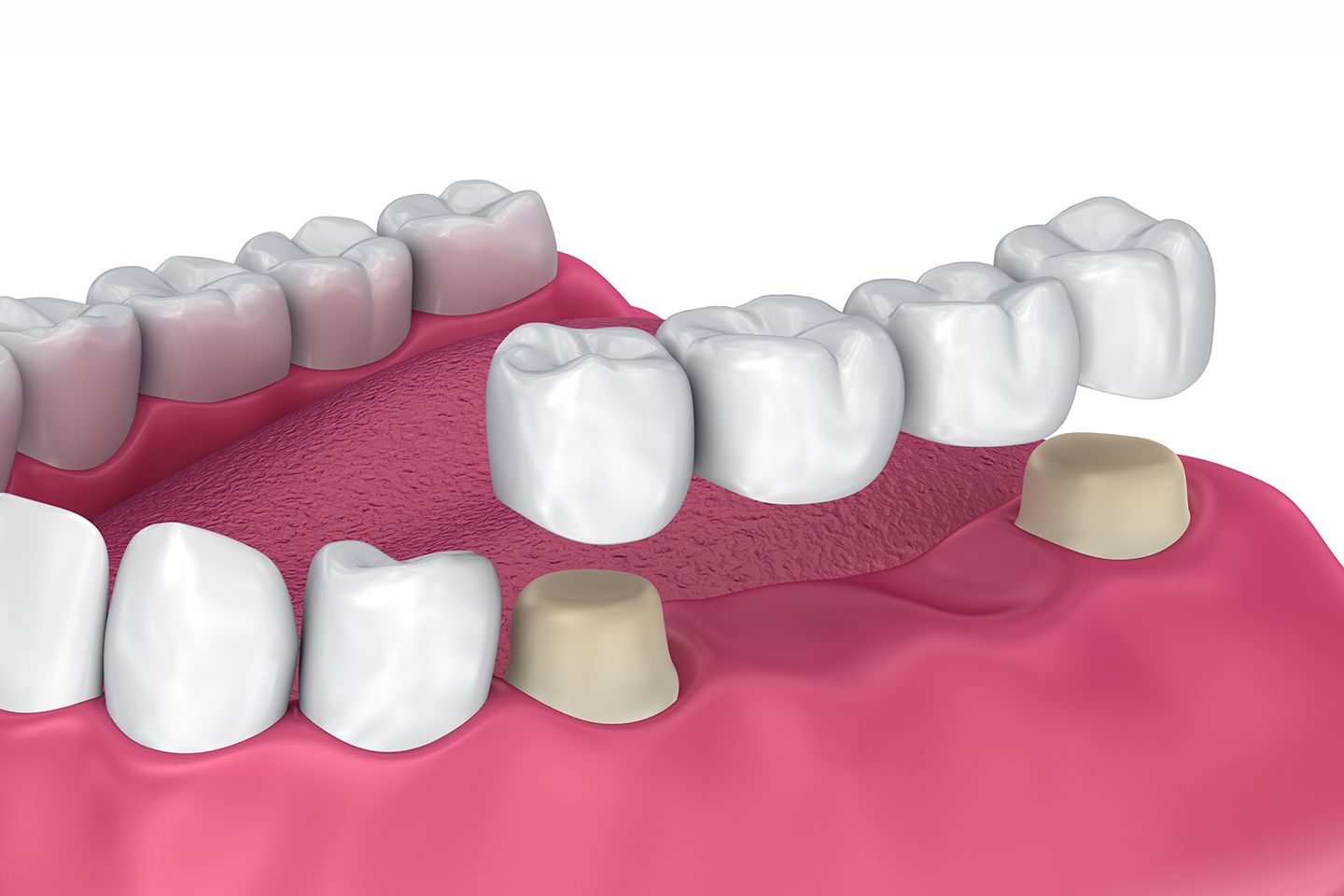Dental Bridge Aftercare
 Dental bridges are an effective treatment option for individuals who have lost between one and three teeth from the same area of the mouth. These restorations, which can be affixed with dental crowns or dental implants, fill in gaps of space left by tooth loss. Dental bridges offer a number of benefits, including strength and durability.
Dental bridges are an effective treatment option for individuals who have lost between one and three teeth from the same area of the mouth. These restorations, which can be affixed with dental crowns or dental implants, fill in gaps of space left by tooth loss. Dental bridges offer a number of benefits, including strength and durability.
Dental bridges have the potential to last for 10 years or more, provided they are cared for properly. Dr. David Narcisi, whose dental practice serves Monroeville, PA, Pittsburgh, PA, and surrounding areas, offers his patients dental bridge aftercare tips that promote treatment success and prolong the lifespan of these dental restorations.
Immediate Dental Bridge Aftercare
Traditional dental bridge treatment is a straightforward procedure that should not result in any significant side effects, or require a lengthy recovery. Implant-supported bridges are placed over a series of dental appointments, and require oral surgery.
Although the treatment process for implant-supported bridges is more complex, by the time an implant patient has their dental bridge placed, they also should not experience any severe side effects.
The recovery period following dental bridge placement should be short and uncomplicated, but there are aftercare tips that can be beneficial upon dental bridge treatment.
- If anesthetic has been used for dental bridge treatment, avoid biting or eating until any numbness has worn off
- Avoid consuming hot or cold foods and beverages, as this could aggravate tooth sensitivity that may develop during recovery
- Use over-the-counter pain medication to manage any discomfort as you adjust to the dental bridge
- Resume regular brushing and flossing routines immediately after treatment
- If sensitivity is an issue, consider using a toothpaste formulated for sensitive teeth
Long-term Aftercare Tips
Once our Monroeville patients are past the initial recovery and adjustment period following dental bridge treatment, they should continue to take certain precautions to protect their dental restoration. Patients should care for a dental bridge the same way they would care for natural teeth. If something would pose a risk to the natural teeth, it is likely that it could cause damage to a dental bridge as well. We recommend these long-term dental bridge aftercare tips:
- Avoid biting down on hard foods or non-food items
- Refrain from eating sticky or chewy foods that could dislodge the dental bridge
- Practice good oral hygiene habits, including brushing at least twice a day and flossing daily
- Consider using a floss threader to make it easier to floss around the dental bridge
- Schedule bi-annual dental exams and cleanings
- Refrain from smoking or using other tobacco products
What to Do if a Dental Bridge Is Damaged
Even if people are careful about caring for their dental bridge, accidents can happen and damage may develop. It is important that patients report any dental bridge damage to a dentist right away, to avoid further dental complications. Depending on the type and extent of damage, the dental bridge can either be repaired or replaced.
Contact Us
Dental bridges offer a strong and durable replacement for missing teeth. If you would like to learn more about dental bridge treatment, or what to expect after your procedure, Dr. Edward Narcisi would be happy to answer any questions you may have. To get in touch with our dental team, send us a message online, or call (412) 373-9447.


